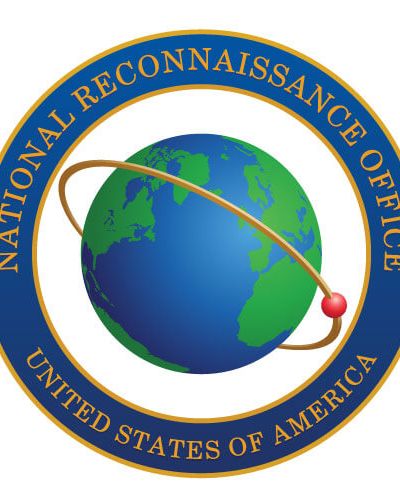Leadership & Company Culture: Am I a Good Fit? by Katherine Chevalier (Dahmen)
Katherine Chevalier (Dahmen)
Engineer & Acquisition Specialist - Enterprise Budget LeadDiscovering Your Professional Path: Are You a Good Fit?
We all aspire to excel in our careers, but a pivotal key to this journey lies in understanding whether we are a good fit for the prevailing environment and culture. Let us dive into the insights shared by Catherine Chevalier, a veteran with 20 years of experience in the defense industry, where she delves into the dynamics of leadership, company culture, and career development.
Knowing Yourself: Professional and Personal Goals
Analysing and understanding oneself is the first crucial step towards determining whether you fit into a particular organization or role. Two dimensions that need particular focus are your professional and personal goals.
Professionally, your goals might revolve around the hierarchy, duration of experience, breadth & depth of experience, and education. On the personal front, considerations might include relationships, financial aspirations, material accomplishments, spiritual attainment, and recreational goals.
Ask yourself: what shaped your current goals? How have they changed over time, and what caused these shifts? Determine your definition of success and assess how you measure progress towards this goal.
Evaluating Quality of Life, Season of Life, and Work Environment
Your quality of life is driven by factors like your work environment, home environment, commute time, and financial status. It is essential to consider these factors in conjunction with the current season of your life. Depending on whether you are single or married, have dependents or not, or are in different stages of your professional journey, your perspective and priorities can vary significantly.
The leadership style and work culture prevalent in your organization are critical components that affect your professional satisfaction. Do you resonate with the way success and failure are handled within your organization? Do your leaders and peers value your contributions?
The NRO Experience: A Case Study
Catherine shares her personal experience working at the National Reconnaissance Office (NRO). She emphasized that the NRO has continuously inspired and encouraged her to redefine her goals. Be it in the realm of quality of life, the team-oriented work culture, or the high rewards for mission-focused work, her experience at the NRO has ticked all the right boxes for her. An honest self-assessment linked to the state of professional and personal affairs is key to determining the right fit.
Guide to Assessing Your Professional Fit
The ongoing assessment of various life and work factors guides you to understand whether you are a good fit in your current organization and role. Here is a quick guide to help you continuously assess:
- Your Goals: Are they aligned with your role and the organization?
- Your Quality of Life: Is it positively contributing to your overall happiness?
- Your Season of Life: What opportunities does this season offer you?
- Your Leadership: Does it inspire you and align with your values?
- Your Work Culture: Does it make you feel valued and included?
The answers to these vital queries help to determine whether you were, are, or could be a good fit in your role in the organization. After all, as Catherine beautifully summarized, the consistent measure of our career success should not just be based on professional achievements but also the quality of life and happiness that our career brings us.
Final Thoughts
Being conscious of your core values and priorities and aligning them with your job expectations and work culture is a continuous journey, not a one-time task. Regular self-assessments can guide you in adapting and growing along your professional path. Always ask yourself: "Am I a good fit?" This question is a compass directing you towards a fulfilling and successful career.
Video Transcription
Wonderful. Thank you everyone for joining this session today. We have the pleasure to welcome on the stage. Our speaker from the NRO this is Catherine Chevalier. She's an engineer and a acquisition specialist, uh enterprise budget lead.And uh she's going to be talking more about leadership, co company culture and she's going to answer the question. Am I a good fit when it comes to career development and how one feels at the job? So, Catherine has more than 20 years of experience in the defense industry. She's coming from a background of industrial engineering and systems, architecture and it's absolutely my p my pleasure to give her the stage right now, Catherine, whenever you are ready, feel free to take it away.
Great. Thank you. Thank you all very much. It's an honor and a privilege uh pleasure to be here with you uh today. And um yeah, I just uh wanna invite you to come with me on a journey um as we kind of step through the next um you know, 1520 minutes um to just really envision yourself. So as I'm asking these questions, um I really just want you to ask yourself these questions because I have found that one of the best um mentoring or coaching capabilities and the best way to sort of navigate through life has been um a asking the questions, asking the right questions and asking them often.
And I have found that that's been um a useful tool, not only in with peers and, and mentees, but also um in helping myself sort of navigate through uh a difficult terrain. Um So just a quick overview. First, we'll go over a few definitions and um talk about knowing myself. And when I say myself, I'm not talking about me again. This is about you. I really bringing you into this journey. So it's really about knowing yourself. What are your goals, your quality of life and season of life, understanding my environment, what is your environment? What is a leadership and culture like and then piecing it all together and we'll end out with a couple of questions. So just to dive right in um to start with a few definitions, what is, what is to lead mean? It's a verb, it's an action word, um Webster's dictionary and other dictionaries will tell us um to lead means to guide. Um But for myself, I would say that it's someone that I wanna follow someone I respect and have confidence in. So I would just imagine that in your, in your imagination right now, you just picture someone um within your sphere of influence that you aspire to you think man, this person is a great leader.
Who, who is it someone that you wanna be, someone that you want to follow, you don't have to make yourself follow them. You want to be around them, you respect them, you have confidence in them. That's the kind of leader you wanna keep in mind as we step through this. The next definition is a culture. Um A set of shared attitudes, values, goals and practices that characterize a group that's again, gonna be sort of the dictionary definition. I would summarize it to be a reflection of leadership. So again, going back to that person that you imagine in the last uh the last idea, what is it that they do that shapes the atmosphere around them and you can see the fingerprints of their decisions in, in everything that's around them, right? It's a reflection of their decision making, the reflection of their communication um techniques. And so again, just the idea of culture. Um And that it follows sort of in the vortex of the, of a leader. Um So a couple of questions like, why does this matter? Um what does this have to do with me and my job and my career? Why, why does all of this matter? So we're gonna step through this. Um So again, first knowing myself, uh what are my goals?
So what types of goals we talk about goals, talk about two different types, really professional goals and personal goals. Um, in professional realm, it could be the level or rank. Um, are you a director, an associate deputy? You know, there's a title that's usually affiliated, uh, duration.
I've been working, you know, professionally for X amount of years. It could be 1020 3040 experience. I have a breadth and depth of experience within a certain organization or across multiple organizations inside one industry, pro public or private or multiple industries. Again, just breadth and depth of experience.
And then education, is it a certain degree set of degrees um different levels? Right? And then personally what relationships do you want have? You, do you aspire to have? What is your uh goal? You wanna have a partner? You wanna be married, you wanna be single, whatever that is relationally, you wanna have close friends, many friends, um all of that financially, you wanna have X amount of dollars in the bank. Um Materially, you wanna have that house, a dream house, spiritually you wanna re uh have achieved a level or be on a path that brings you peace or joy on a regular basis and recreational. What are your goals as well? I wanna, I wanna, you know, jump out of an airplane or whatever. So again, just try to get AAA feel for what your goals are and just, you know, to be aware of these goals change over time. So just to ask yourself right now, what are my goals and who are, what shaped my current goals are the people from my family and my past people around me right now. How have they changed over time? If you actually go back in time and look at your life, um you can have some, some, some things that impacted you that had put you on the trajectory that you're on, whether personally or professionally in your goals.
And so it's just good to know like, is that a positive thing? A negative thing? Um And then why have these goals changed over time? Um Again, these are all questions to continue to ask yourself. Um You know, either when you have a life change or um your quality of life changes or you have a job change, it's just good to kind of check in with yourself. So this is a key question. Um What is my definition of success? And I find that I find myself asking, asking me that all myself that all the time. Um How do I define success in this moment? Um And, and, and what am I, how am I measuring my progress? Um Because really at the end of the day, nobody could do this but you, so nobody gets to assess the definition of success. And if you're living up to a family member or pressure from someone else, you're probably not gonna get too far. So it's just really good to have these honest assessments and asking ourselves these questions. So um the next thing after looking at at that is gonna be knowing myself, looking at the quality of life. So what does that mean? Quality of life defining factors could be your work environment? Are you working from home? Are you working in an office? Like what is the lighting like there? How does it smell like? What, what is that like? Is it busy? Is it quiet? Um your commute?
Like how much time do you spend going to and from the, the place where you work? It might be 10 steps away because it's, you're, you're, you know, you're working at home or maybe you're sitting on the uh a road for an hour and a half, um or a train for an hour and a half. All of these factors drive your sort of your, your happiness factor, right? Home environment. Um How much sleep can you get? Can you exercise regularly eating? These are all aspects of what we call the uh quality of life. So financial is, how is your compensation, meeting your needs?
You know, are you living within your means? And then of course, how are you managing your time? So all of these things can kind of total up to having an over overtime quality of life. That's either a good thing or a bad thing. And we often affiliate that with our, with our jobs and where we are in life. So some of these questions around quality of life. Am I content? I like my commute. Am I happy being on the road for an hour and a half? Maybe it's ok because I can listen to a book and that's how I get to have my, my quiet time with my book. Maybe not. Um If there's something I could change, what would it be. But if we kind of walk through the, each of a list of each of these things as we um go through our work environment, it really gives us an assessment of where we really are. The next area is gonna be season of life. Like what season of life am I in? What would I, how would I define a season of life? Could be personal um On the personal realm will be relational. Um, again, partner, no partner, single, married, chronological, um could be in the twenties, thirties, forties, fifties, biological.
Um our bodies start and stop doing things over time. I'll leave it there. Um, familial, there could be um biological Children, there could be uh adopted Children, there could be elder care, things like that. Um Professional. There's a range, right when we were, we're in our, maybe in early in our careers. It's 100%. I'm all in, I don't have anything pulling me outside of work too much. Um And then all the way down to zero, I'm like, man, I'm retiring. So kind of, it's good to kind of gauge ourselves like where are we on that scale? What seasons of life have I been in the past? Um It's good to kind of look at again, going back to dependence and no dependence. Big difference between having babies, raising Children being an empty nester, having um uh elder care and otherwise other types of dependence. Um and versus not having any at all. So those are all factors that, that, that feed into the quality of life. And we'll, I'm definitely gonna tie this back into leadership and culture in a minute. So we're just trying to step through a couple of things first. Um Couple questions. What season of life am I in now? Where am I? What opportunities was my current current season afford me said differently if I have, um you know, if I've got four young Children at home, um that might, you know, put likely a different type of time demand on how much I can or cannot spend at work versus, oh my gosh, my, you know, my last child has finally graduated from college.
Um I might, that might afford me different things right? As far as my time management and finances. Um And what opportunities is it best to avoid or delay? Um Is that demanding job a really good time for me right now? Can I really pour into that and do well or is it best to, to, you know, delay that to another time? It's just not good because my um you know, I have elder and some elderly uh dependents are now um you know, under my care, for example. Um And then how long do I anticipate I'll be in this season. Is this like indefinite or is this just gonna be for like a year? And then maybe I can reconsider that, that employment opportunity that I really wanted. Um So let's step back into leadership. So understanding my environment, let's go back to picture and go back to the definition of picturing the leaders within my organization. Who is it that I aspire to? Um do they espouse the same values that I do again, kind of in your mind. Think about someone that um that you can say, yeah, I, I can imagine this person. Um Do I know that my contributions are valued? And how do I know that, how do I know when I come to work? That what I bring to the table is valued and that I fit in? Um at the end of the day, can I say that I made a difference? And my leaders agree if the answer is yes, that's great.
And if the answer is no, it's really important to have that honest assessment. OK. This is another one of those key ones, first key. And this was, you know, what's my definition of success? This is another key one. Um is it do my leaders and my peers value what I bring to the table really good question. Do I fit in that really ties into? Do I fit in? Um Next, we're gonna look at culture. So imagine again, now, not people but your work environment. What defines success in your work environment? How our success is celebrated? And how do you feel about that? How does it feel when like, hey, we had a big win. Yeah, or oh gosh, we totally had a failure. What is a failure was a failure? Not getting that proposal, you know, your loss, the proposal. Um And how does that feel like how is that failure handled? And how does that make you feel? That's another key to kind of gauge your, your environment? Do you fit in and then making the connection? Do you see your leadership role in the handling of successes and failures? And does the culture that your leadership create work for you? These are all great questions kind of ask yourself, do I fit in here? And all of these questions aren't something that we ask ourselves one time. It's things we continually ask ourselves over time because our environment and people are gonna change. So piecing it all together. Um Taking an honest assessment.
Um my goals are and are not my quality of life is and is not my season of life affords me and does not my leadership inspires me or does not. My work culture is and is not the timing is right right now. It's not right. Right now, it may never be right. Lastly, I'm a good fit. I was a good fit. I could be a good fit. I may never be a good fit. So these are all kinds of things you wanna think about in, in assessing. So lastly, uh why the nro like for me personally, um my goals um it's been, it's enabled me and stretched me and to encourage me to set brand new goals, It's broken all my goals that I had. I've exceeded them um quality of life, it meets my needs. I walked through the list that I just walked through with you and, and it met everything that I wanted. Um season of life. I've noticed that there's a lot of people and a lot of different seasons of life and they, the um work environment is very flexible to meet, meet. Um all seasons is what I'm seeing. And I'm, I'm watching that across the workforce um as I've been working for for 20 years and I'm working amongst people that have been working for 40 years and I, I'm watching it all um leadership um high integrity uh within the government and high work ethic and high rewards.
People are very mission focused, very work, hard play, hard type. Um The culture is very team oriented, uh very mission focused and I know that I make a difference every day so that intrinsic reward that intrinsic value is, is being met daily. Um timing um a honest assessment is easy and essential. And this is something honestly, everything that I've just shared with you are questions that I ask myself with. Every time I either take on a new job or something quality of life or season of life changes, it helps me gauge where I'm at and uh and, and, and whether it is a good fit and whether it continues to be a good fit um teaming, I know that I have the support I need for my leadership and it's reflected in the culture.
Absolutely. And I can say to date um at the nro I am a good fit. And so the question I extend to you is are you a good fit? Um I am gonna stop here just, just shy. I literally have 15 minutes, just wanna open up the floor for any um questions that anyone has and I am not uncomfortable with silence so anyone can break the ice at any time. Ok. Well, we've got a couple of minutes to spare. Um I will share briefly. I've worked um across five different um government agencies um both as a contractor and as a government in government service and in industry as ac, a um a contractor in FFR DC as a nonprofit. So I've seen a wide breadth and depth of a lot of these things that I'm talking about over the last 20 plus years. Um And uh and real quick, the one of the reasons that I did decide to, to come to the NRO is um I was really inspired by the senior leadership that I worked with when I was working at the Pentagon and, and just the high level of integrity that they had. And I'll say when I asked myself, was I a good fit within that environment, I was for where I was.
But um those jobs were very, very demanding and I watched people um as I have for most of my career, a lot of the, the leaders that I asked you to imagine yourself imagining, you know, working with a lot of them um work a lot of long hours. And um and that was something that I was very aware of, is that OK? If I'm gonna, if I'm gonna aspire to get to that level, I better be at a season of life where I can handle that. So I think there's wisdom in, in constantly asking myself, am I a good fit? What are the expectations of the leadership around me? Um And what is the culture that they shape with their decisions? And, and do I fit in? So with that? Um Unless there are any questions?






